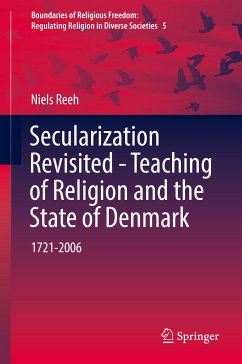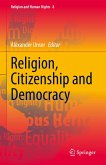In the first part of the book, Niels Reeh argues that inter-religious dynamics and state agency in particular have been neglected by the sociology of religion. Reeh then proposes a new analytical framework that can incorporate these two elements into the analysis.
In the second part of the book, Reeh applies the analytical framework and presents the first long-term historical sociological case study of the teaching of religion in a European state. His study of the political decision-making concerning the teaching of religion in Denmark from 1721 to 2006 reveals that the Danish state's interest in the religion of its inhabitants to have been dependent on the external relations of the state and the state-form. On this basis, Reeh shows that the changing state interest in the religion of its inhabitants is a crucial factor both behind the decline of the social significance of religion from 1720 to the 1990s, and behind its increase in the years following 2001. Consequently, Reeh argues that sociology should abandon unidirectional theories of secularization and instead shift to studies of historical religious change.
The book is intended for students and scholars of religion, sociology, educational history and history in general (as well as the general public).
Dieser Download kann aus rechtlichen Gründen nur mit Rechnungsadresse in A, B, BG, CY, CZ, D, DK, EW, E, FIN, F, GR, HR, H, IRL, I, LT, L, LR, M, NL, PL, P, R, S, SLO, SK ausgeliefert werden.









